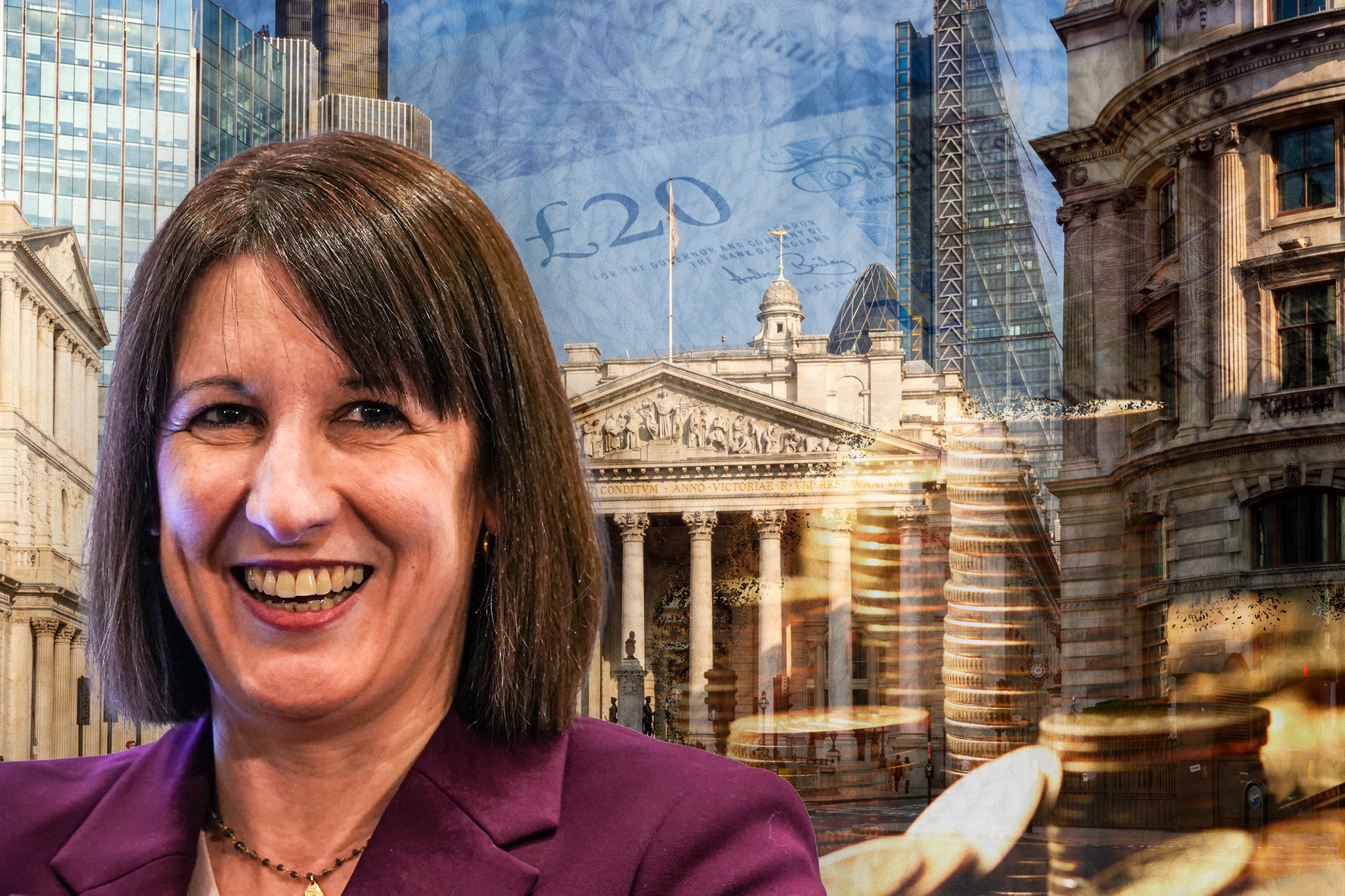Relief in the City: the new inflation rate means the BoE could cut rates as soon as next month
The City was braced for a 3 per cent inflation rise so 2.5 per cent comes as something of a relief. And with cuts floated for the next few months, might chancellor Rachel Reeves finally be in for a lucky run, asks James Moore


Luck has not been with Rachel Reeves. The economy’s casino has been against her, delivering a succession of bad dice rolls, and the markets have only added to her woes. But with the latest inflation figure, she has finally caught a break.
Prices rose by 2.5 per cent in the year to December, above the Bank of England’s 2 per cent target for the Consumer Prices Index (CPI) but a shade lower than the previous month’s result (2.6 per cent) – and certainly below the expectations of most economists.
Such is the level of uncertainty stalking the markets that there were real fears of a price spike emerging to rain chaos down on the embattled chancellor, who is grappling with soaring borrowing costs which have wrecked the government’s projections.
This result, however, may give the Bank of England’s rate-setting Monetary Policy Committee (MPC) what it needs to deliver the hoped-for (and prayed for at 11 Downing Street) quarter-point cut in February. Such a move would leave base rates at 4.5 per cent. That is still painfully high by recent standards but Britain’s battered borrowers – both businesses and individuals – will take what they can get.
Digging into the numbers, there is plenty for the MPC to dine on. Their case will be particularly strengthened by the marked reduction in “core” inflation which excludes the most volatile categories: energy, food, alcohol and tobacco. This closely watched number came in at 3.2 per cent, a welcome fall from the previous 3.5.
Better still was the surprisingly sharp fall in the rate of service price inflation, the stickiness of which has persistently been cited as a problem by the MPC, and no wonder given Britain’s service-led economy. It fell from 5 per cent to 4.4 per cent. The Bank had forecast 4.7 per cent. While energy costs were a black spot, the Office for National Statistics (ONS) said the price of hotel rooms eased after rising this time last year. Airfares also contributed some downward momentum, as did tobacco. Food held steady at a bearable 2 per cent, notably lower than the measure produced by researcher Kantar, which reported a 3.7 per cent rise in its recent supermarket update.

“While a lot of the surprisingly large fall in services inflation was due to a very sharp fall in airfares, underlying price pressures still appear a bit more favourable than we had thought,” says Ruth Gregory, deputy chief economist at Capital Economics. “That strengthens the case for a 25bps interest rate cut in February and lends some support to our view that rates will fall further and faster than markets expect.”
Let’s be clear here. Prices could still take a turn for the worse in the new year, and they sometimes do that. But this will still be music to the ears of those working in a finance ministry over which a dark cloud has taken up residence. The surge in Britain’s borrowing costs as a result of the bond markets’ distemper has put Labour’s plans to pep up the UK’s torpid economy at real risk.
The chancellor’s headroom over her fiscal rules, which set limits on how much she can borrow and for what purposes, has evaporated and an emergency budget has not been ruled out. If the bond markets don’t turn in her favour, Reeves will have no choice but to raise taxes or impose the sort of spending cuts that will have Labour MPs in revolt. But they may yet do that and this update should help.
The economic roulette wheel has finally landed on Labour red offering the chancellor, and by extension the government, some desperately needed breathing room. This does not mean that the current crisis is over by any means. Businesses have repeatedly warned that they will have to increase their prices as a result of the chancellor’s decision to increase employer national insurance contributions, a tax on jobs, to plug the hole she identified in the public finances. This would send inflation higher and spook the MPC.
However, a lack of consumer and business confidence could limit their scope for doing so which may help to explain some of what we are seeing here. There will be still more breathing room if the MPC delivers that cut, easing the pressure on businesses not to mention people looking for mortgages. City speculators have raised the chances of that from 60 to 80 per cent. Reeves would be wise to take the opportunity she now has to calm nerves and restore some of the government’s shaky credibility with the nation’s unhappy business community and the City.
Join our commenting forum
Join thought-provoking conversations, follow other Independent readers and see their replies
Comments
Bookmark popover
Removed from bookmarks